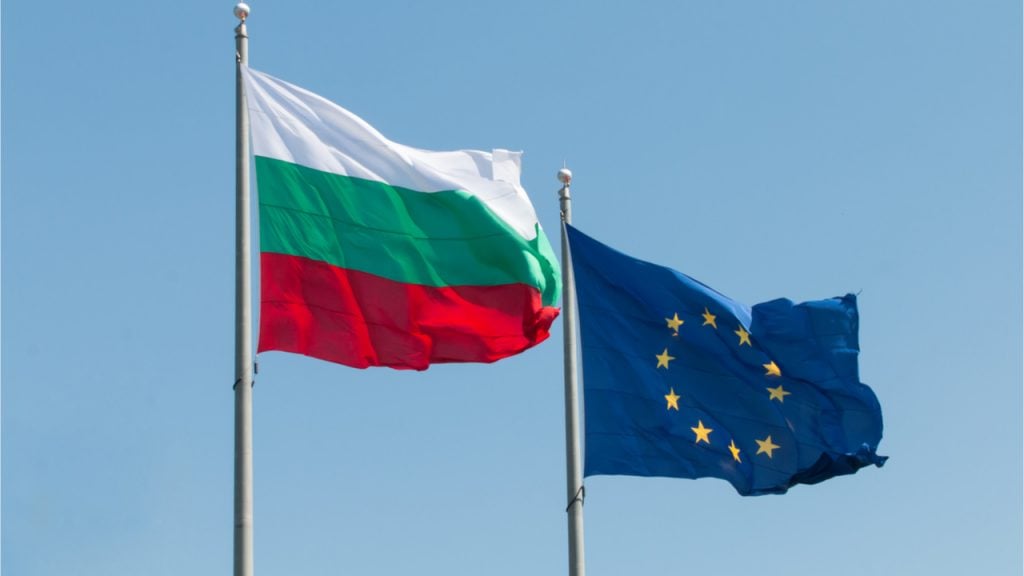[ad_1]

Many fintech startups and established companies are now looking for a new home across Europe due to Brexit. Bulgaria is shaping up to be the top destination for many of them, including crypto, blockchain and licensed electronic money institutions, as proven by leading firms such as SM Digital Holding and Wallex.
Meet the Next Blockchain Industry Hub
Bulgaria is known for having a good track record with the fintech ecosystem, and for being very competitive destination for money licensed institutions due to its supportive regulations and its good standpoint within Europe. The country is now set to soon bypass Lithuania as the number one jurisdiction following just the UK. Lithuania is open to crypto companies but also going down in appeal because of the risk of European banks refusing transactions from the country.
One of the main advantages of Bulgaria for the industry is that it serves as a ‘pipeline’ for money licensed institutions. Bulgaria has a licensing structure unlike the UK FCA licenses, rather it consists of around ten money licenses and all other licenses are passported. A passported license is when a company is granted a license by one European regulator and other countries on the continent recognize it and let the company operate within their local markets.

An example of the appeal of the country is that Simone Mazzuca, Wallex Director, based his company in Bulgaria – SM Digital Holding. It is a company providing digital financial and legal advisory services to international companies. SM Digital Holding is also the company that supports Wallex Trust and Wallex Custody. Wallex is an international group which provides asset protection services, including a custody service, borderless banking solutions, OTC services, exchange platform, property management, crowd-funding operations and international licenses.
Bulgaria Offers Many More Advantages
Beyond its competitive licensing structure Bulgaria has much more to offer crypto and fintech companies. The country is strategically located close to many markets, it has a very talented European labor pool and it is also very affordable for companies and workers. Despite being an EU member, Bulgaria is still outside the Schengen Area and therefore prices for rent, salaries, food and much else are on a different scale than other European countries – giving companies a bigger bang for their buck.
For these reasons the World Bank has opened its shared services office in Sofia, Bulgaria a year ago in order to provide corporate and technology support to its business operations around the globe. The location was chosen following a competitive search based on a broad number of criteria including cost effectiveness, the quality of the information technology (IT) infrastructure, and the local talent pool. These days there are even hopes in the city about the possibility of the World Bank opening a European headquarters there.
“I am very happy with the establishment of the shared services center in Sofia. It further strengthens Bulgaria’s strong partnership with the World Bank and acknowledges the many advantages Bulgaria has to offer” – Koen Davidse, World Bank Executive Director for Bulgaria

For many in the crypto world Bulgaria is also considered a symbol for supposedly being the largest bitcoin holder in the world, second only to Satoshi Nakamoto himself. This is because it was announced in 2017 that the authorities in the country seized over 213,000 BTC, worth more than $4 billion today.
If you want to give your company the great benefits of all the many advantages Bulgaria has to offer, including its welcoming EMI licensing structure, reach out to SM Digital Holding.
This is a sponsored post. Learn how to reach our audience here. Read disclaimer below.
Image Credits: Shutterstock, Pixabay, Wiki Commons
Disclaimer: This article is for informational purposes only. It is not a direct offer or solicitation of an offer to buy or sell, or a recommendation or endorsement of any products, services, or companies. Bitcoin.com does not provide investment, tax, legal, or accounting advice. Neither the company nor the author is responsible, directly or indirectly, for any damage or loss caused or alleged to be caused by or in connection with the use of or reliance on any content, goods or services mentioned in this article.
[ad_2]
Source link



